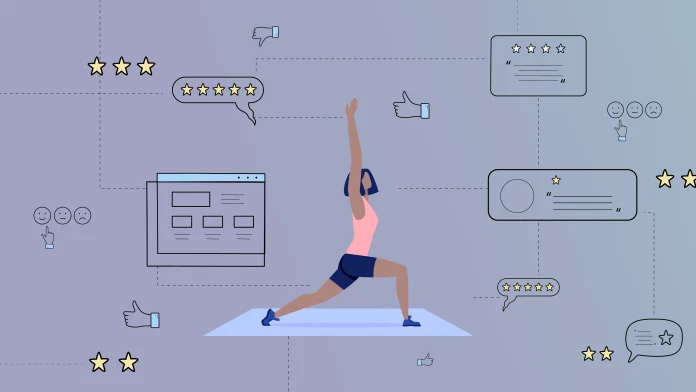Written by Santiago Berisso
Medically reviewed by Susana Pontiggia (Psychologist, Specialist in Neuroscience and Human Behavioral Sciences, Consultant in Personal and Organizational Development)
The line between work and personal life seems increasingly blurred. It’s not just about being online for more hours a day, ready to respond to a supervisor’s demands. The issue runs deeper: this work culture often leads to self-imposed pressure. Even when no one else is demanding something from us, we push ourselves to stay productive. This relentless drive to always be doing something can turn into self-exploitation. But is it possible to find a healthy balance between work and personal life?
The Appeal of Severance: Separating Work and Life
The TV series Severance sparked a public conversation about this issue. A recent study surveying 2,000 workers in the UK found that more than a third would choose to adopt a fictional concept from the show: completely separating their work and personal lives. Essentially, this would mean compartmentalizing their minds so that these two spheres never intersect. Among respondents aged 18 to 25, this number rose to nearly half.
Regardless of individual opinions on such a drastic measure, the real question is: why have we reached a point where this idea seems appealing? Why is balancing work and personal life becoming an increasingly complex challenge?
A Rapidly Changing Work Landscape
Over the past few decades, work environments have changed dramatically. One of the most significant shifts was the rise of remote work, which many companies quickly adopted during the pandemic. This sudden change highlighted the immense diversity within the global job market and exposed the lack of structure behind relocating work from offices to homes—even if only temporarily.
This shift has made it even harder to define the boundary between work and personal life. According to a study published by Frontiers in Psychology, many respondents linked the lack of a clear work-life division to higher levels of emotional exhaustion, which reduced their overall well-being and sense of happiness.
Moreover, since the pandemic began, checking work messages and emails during weekends has become more common—regardless of whether the work model is remote, hybrid, or in-person. This new habit makes it increasingly difficult to determine when a workday truly starts and ends.
Mobile Devices: Allies or Intruders?
Mobile devices play a significant role in blurring the line between work and personal life. On one hand, smartphones and laptops provide flexibility, allowing us to work from anywhere and at any time. On the other hand, these same devices have become primary drivers of a 24/7 work culture, which we increasingly accept as normal—often at the expense of personal well-being.
Researchers Adela Chen and Samantha Conroy argue that the impact of using devices outside work hours depends on context. Sometimes, completing a quick task can ease anxiety, while for others, any work-related notification during personal time feels invasive and stressful. Finding a balance requires acknowledging that device usage is not inherently good or bad. It’s essential to assess how each situation affects well-being individually.
Our Notion of Flexibility: A Key Factor
To understand the effects of using devices outside work hours, researchers highlight two essential points:
- Completing a small task can be relieving: For some, ticking off a to-do item—like replying to an email or jotting down notes for a project—brings a sense of control and relief.
- It can also feel intrusive: For others, handling work-related matters outside of scheduled hours feels like an unwelcome intrusion, disrupting personal time.
Interestingly, the same action can trigger opposite stress responses, depending on the person and context. For some, a strict rule against sending emails after work helps reduce stress and creates balance. For others, it causes frustration and greater stress because they must wait to complete a task, clashing with their personal rhythm.
Setting Boundaries to Manage Stress and Anxiety
As we’ve seen, flexibility can mean different things to different people. At work, we often face choices that can trigger stress. Taking time to reflect before reacting can help us make more thoughtful decisions. Small boundaries, like defining when to disconnect, can significantly impact how we balance our personal and professional lives.
Tips for Work-Life Balance
- Pause Before Responding: Imagine being at home after work and receiving an important message. Can the reply wait 15 minutes until you finish cooking or exercising? Taking a moment to reflect before responding can help reduce unnecessary stress.
- Draft, Don’t Send: If your workplace prohibits sending emails outside of office hours, but you still want to clear your mind, draft the message and set it to send first thing in the morning. This way, you get peace of mind without disrupting your evening.
- Clarify Deadlines: When given a task without a clear deadline, ask, “What’s the timeline for this?” This simple question can help manage your time more effectively and reduce stress.
- Rethink Productivity: The saying “Don’t put off until tomorrow what you can do today” can lead to anxiety-driven productivity. Instead, practice mindful action—sometimes taking a break and revisiting a task with a fresh perspective can yield better results.
Striking a Personal Balance
In the end, balancing work and life is a highly personal journey. Understanding your own preferences and setting boundaries accordingly can help you manage stress more effectively. Rather than aiming for perfection, strive for harmony between your professional responsibilities and personal well-being.





